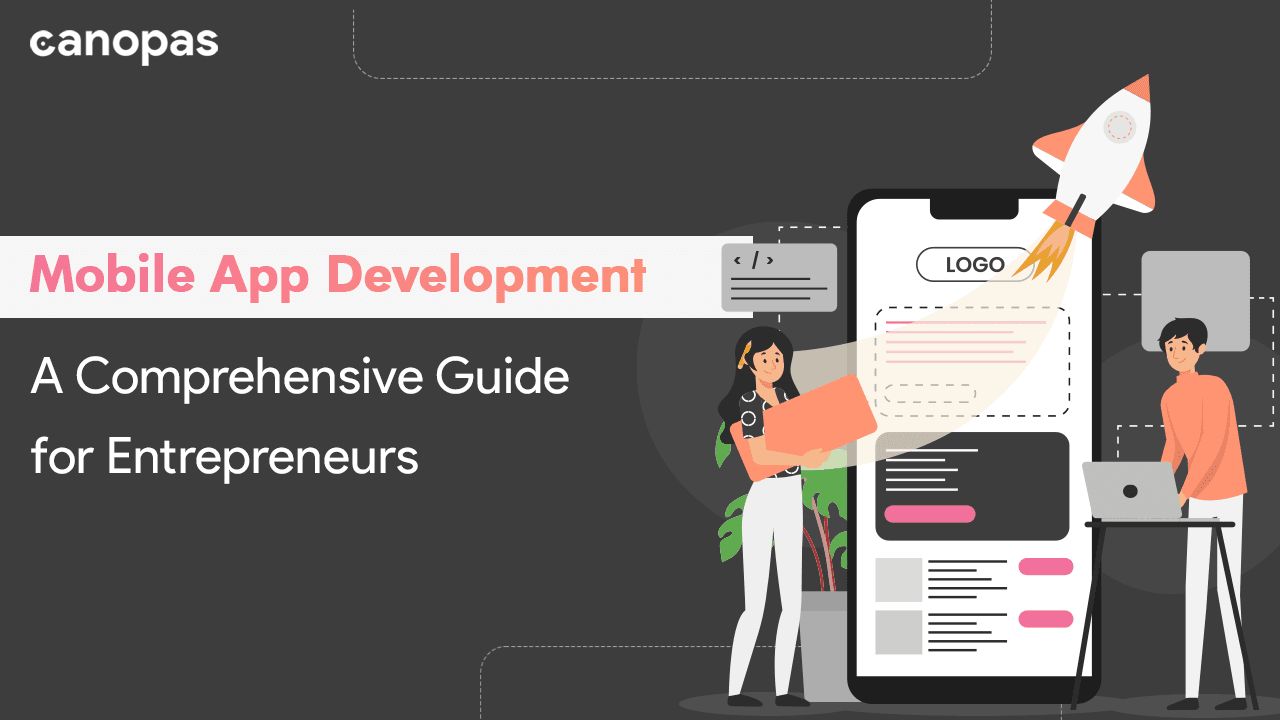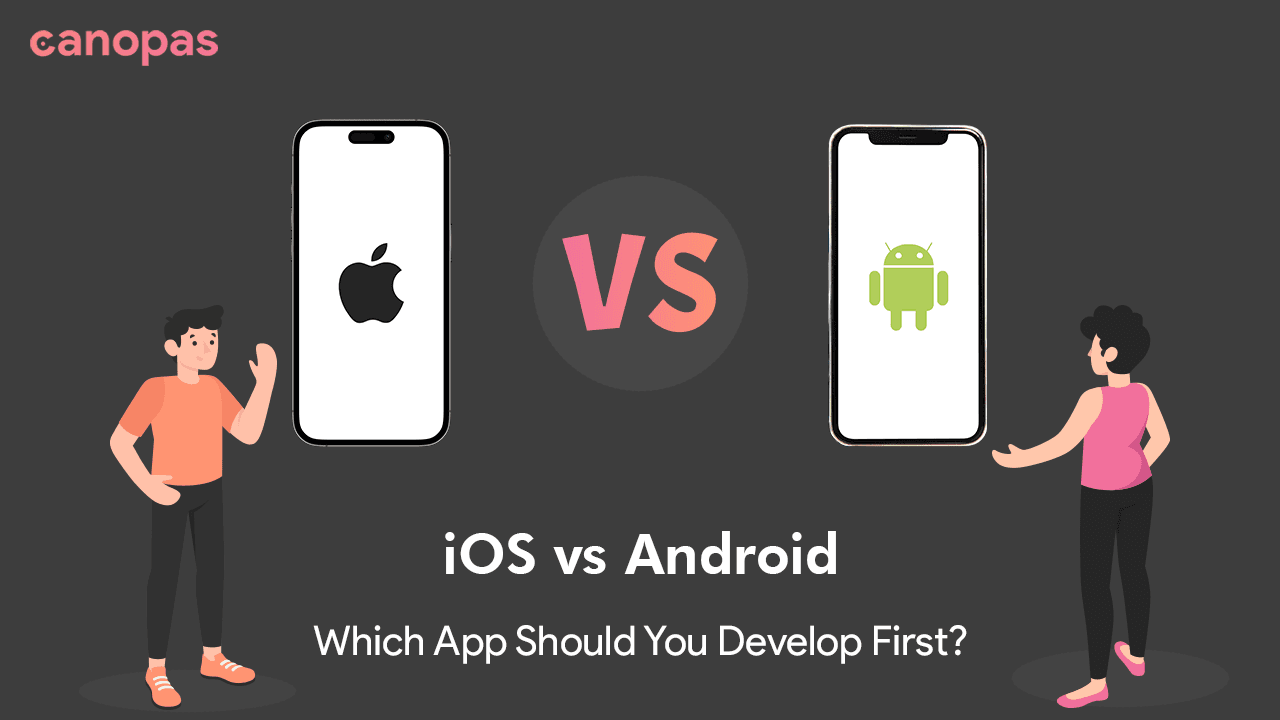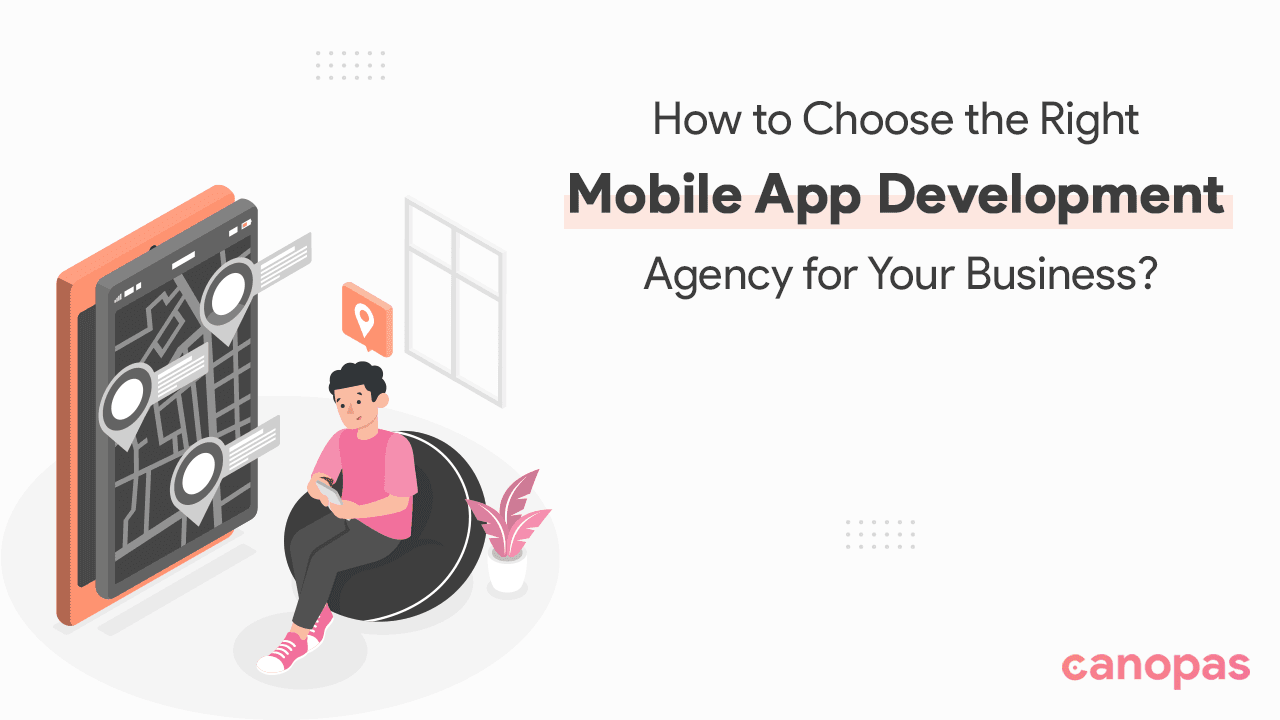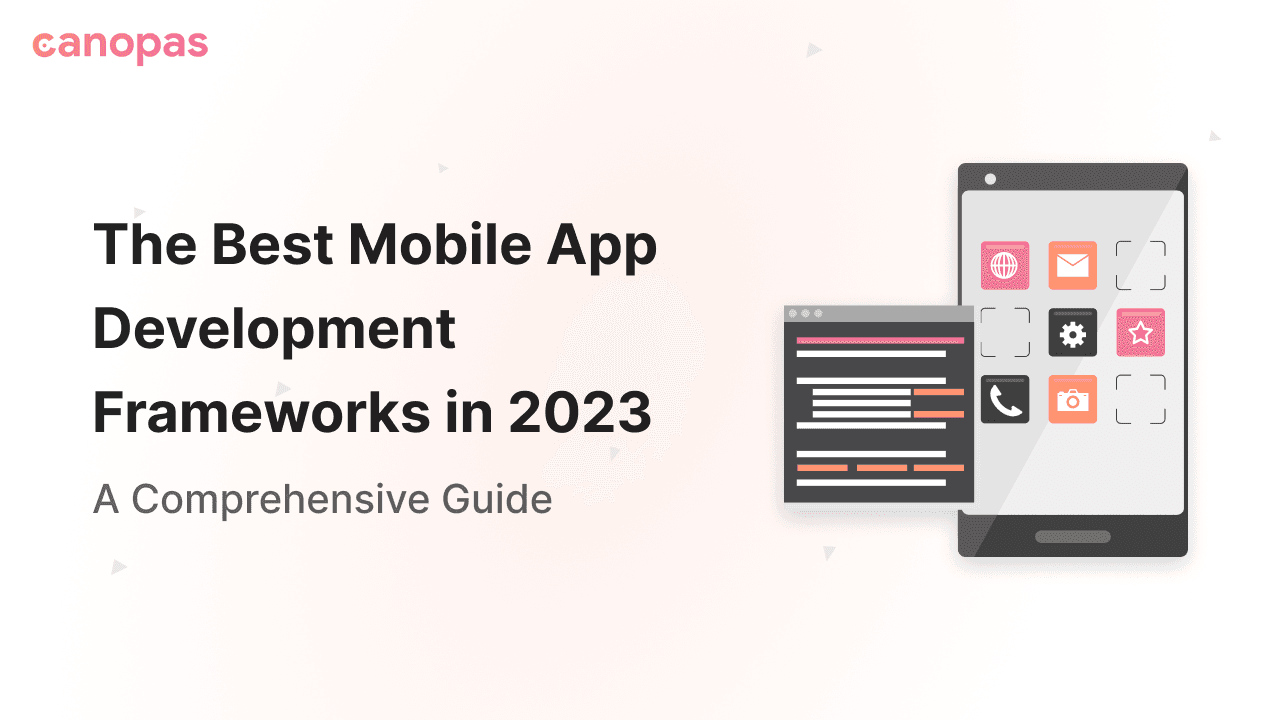
Mobile App Development - A Comprehensive Guide for Entrepreneurs
Mobile App Development — Introduction
In the bustling heart of New York City, Lisa, a passionate entrepreneur, was sipping her coffee. She gazed out of the café window, lost in the endless sea of people busily swiping their fingers across the screens of their smartphones.
It was a moment of revelation for her: mobile apps were not just digital tools, but powerful bridges connecting businesses to their customers. That's when she decided, her unique clothing boutique needed a mobile app. But, as is the case with many entrepreneurs, she was not a tech expert. The realm of mobile app development was an uncharted territory for her.
If you're like Lisa, with a burning idea and a determination to bring it to life in the form of a mobile app, then this guide is for you.
Embarking on the journey of mobile app development might seem intimidating. You're confronted with a sea of jargon – frontend, backend, UX, UI, iOS, Android – and a whole new set of rules that might seem as complex as mastering a foreign language. But fear not, this comprehensive guide is designed to help you navigate these choppy waters.
In this post, we're going to demystify the mobile app development process. We'll break it down, step by step, from the seed of an idea in your mind to the fully grown product ready to make a splash in the app stores.
We'll explore things like...
- the essential stages of app development
- the decisions you'll need to make
- the hurdles you might face
- and the partners you'll need on your journey.
This guide won't just inform you, it will empower you to make the best decisions for your unique entrepreneurial journey.
So, let's embark on this journey together. Whether you're a seasoned entrepreneur looking to tap into the digital market or a newbie just starting out, this guide is your compass, leading you toward your destination: a successful mobile app that reflects your vision and drives your business forward.
Understanding Your App's Purpose
The first step on this journey, even before you start choosing between iOS or Android, is crystallizing the purpose of your mobile app. This step is akin to setting the coordinates for your voyage.
A clear understanding of your app's purpose will guide every subsequent decision you make, and ensure that your app isn't just a tool, but an effective solution that meets a specific need.
Let's go back to our friend, Lisa. She owns a boutique clothing store. She could easily say, "I want an app for my store." But that's a broad goal. Lisa needs to identify the purpose of her app.
- Does she want to provide a new sales channel to her customers?
- Or does she want to enrich the in-store shopping experience?
- Perhaps she wants to create a community around her brand.
Each purpose requires a different approach in the design and development of the app.
Here are some questions that can help you refine the purpose of your app:
- What problem will the app solve for your customers? The most successful apps are those that make life easier for users. For instance, if Lisa's customers often struggle to find the right size, the app could include a feature that helps them determine their perfect fit.
- How will the app benefit your business? A well-designed app can provide various advantages. It can open up new revenue streams, increase customer loyalty, or provide valuable insights into customer behavior.
- What features will the app need to fulfill its purpose? List out the features your app needs. Prioritize them based on their importance to the app's core purpose. For example, if Lisa's app's main purpose is to sell clothes, a secure and easy-to-use checkout feature would be a high priority.
- What is your Unique Selling Proposition (USP)? Your app should offer something that your competitors do not. That could be a unique feature, superior design, or it could even be the brand itself.
By the end of this exercise, you should have a clear picture of your app's purpose, its key features, and the unique value it brings to your users. This clarity will be invaluable as you move forward in your mobile app development journey.
Choosing the Right Platform for Your App
Once you've identified the purpose of your app and its core features, the next significant decision on your app development journey is choosing the right platform.
Should you go for iOS, Android, or both?
This decision is more than just a coin toss between Apple and Google. The choice of platform can have implications for your app's reach, user experience, development cost, and even revenue potential.
Understanding Your Target Audience
This is the first step in making your platform decision. Android has a larger global market share, while iOS is more popular in specific countries like the United States and parts of Europe. The demographics of your target audience, including their geographic location, income levels, and tech preferences, can guide you toward the right platform.
Monetization Strategy
iOS users, on average, tend to spend more on app purchases than Android users. However, Android has a larger user base, which may result in more downloads. Therefore, if you plan to monetize your app through user purchases or in-app purchases, iOS might be more lucrative. But if you're looking at advertising revenue from a large number of free app downloads, Android could be a better choice.
Development Time and Cost
Cost and development time depend on the platform you chose to develop your apps. Two paths lie before you: one leading to native app development, the other towards hybrid or cross-platform frameworks like Flutter or React Native.
Native or Hybrid
If you choose the native route, you'll be crafting separate, tailored applications for Android and iOS, a process that requires time and meticulous attention to detail. However, this approach ensures top-tier performance, offering a seamless experience to your users, which could be the gold standard if you're an established business with a vast customer base and impressive sales figures.
On the other hand, if you decide to venture into the realm of hybrid frameworks, you'll be wielding a powerful tool that lets you write your code once and deploy it across both platforms with minimal tweaks. It's like having a magic quill that inscribes your idea into the fabric of both Android and iOS in one fell swoop. This path could be your ideal companion if you're crafting an MVP or an initial version to validate your groundbreaking idea.
So, whether you're a trailblazing startup or a titan of industry, choosing between native and cross-platform app development boils down to aligning with your specific needs and strategic goals. Rest assured, both paths are paved with possibilities and potential for success.
Release Cycle
Apple has a stricter and lengthier app review process before your app can land in the App Store. Android’s Google Play Store, on the other hand, has a more lenient and quicker review process.
Choosing between iOS and Android isn't always an either/or decision. Depending on your budget, timeline, and long-term strategy, you might decide to launch on one platform first and expand to the other later, or launch on both platforms simultaneously.
Remember Lisa? If her boutique is in New York and most of her customers use iPhones, it might make sense for her to start with iOS and expand to Android later.
Remember, there's no one-size-fits-all answer here. The right platform for your app is the one that aligns best with your business goals, target audience, and resources.
Designing Your App — UX/UI Matters
After setting your course and choosing your vessel (platform), it's time to focus on the design of your app. This phase is about transforming your ideas into a visual and interactive prototype. The design stage typically involves two key components: User Experience (UX) design and User Interface (UI) design.
UX Design is about the overall functionality and user-friendliness of your app. It involves creating a logical flow from one screen to the next, making it easy and intuitive for users to navigate your app and accomplish their goals.
UI Design, on the other hand, is about the look and feel of your app. It involves choosing the color schemes, fonts, and icons that align with your brand and are visually appealing to your users.
The goal here is to create an app that not only looks great but also provides a seamless and enjoyable experience for your users. A well-designed app can significantly increase user engagement and retention, ultimately driving the success of your app.
Developing Your App — Frontend and Backend
With the design in place, it's time to bring your app to life. This is where we delve into the actual coding of the app. App development is usually divided into two parts: Frontend and Backend.
Frontend Development is about coding the user interface of your app. It involves turning the designs created during the design stage into a functional app. This includes all the interactions that a user will have with the app, such as scrolling, clicking buttons, filling out forms, etc.
Backend Development, on the other hand, is the engine that powers your app. It involves setting up servers, databases, APIs, and algorithms that handle the data and ensure that everything works smoothly behind the scenes.
Developing an app requires a deep understanding of programming languages. Android apps are typically written in Java or Kotlin, while iOS apps are written in Objective-C or Swift. This is where partnering with a reliable app development agency can be incredibly helpful. They bring the technical expertise that you need to bring your app vision to life.
Testing Your App — Ensuring Quality
Once your app is developed, it's important to thoroughly test it before launching it to the public. Testing can reveal bugs, crashes, and usability issues that may have been overlooked during the development process.
Testing should cover multiple areas, including functionality, usability, performance, and security. It's also important to test your app on a variety of devices and screen sizes to ensure a consistent user experience.
Launching Your App — Making a Splash
Finally, the moment you've been waiting for: launching your app! But launching isn't just about releasing your app on the App Store or Google Play Store. It's also about creating a buzz around your launch to attract and onboard your first users.
Marketing your app could involve a mix of social media promotion, email marketing, PR, app store optimization, and more. The goal is to get your app in front of as many potential users as possible and convince them to download your app.
Your Journey Towards Mobile App Mastery
In this comprehensive guide, we've embarked on an enlightening journey through the vast landscape of mobile app development. From crystallizing your app's purpose to making the pivotal platform choice, from designing an enticing user interface to assembling the complex development puzzle, we've explored every pivotal milestone.
Remember, the journey of mobile app development isn't a sprint; it's a marathon, each step carefully taken to ensure your app isn't just functional, but also engaging and valuable to your users.
So whether you're an entrepreneur with a fresh, revolutionary idea or a seasoned business owner looking to tap into the digital realm, remember that the journey of mobile app development is one of continuous learning and adaptation.
In this digital age, a well-designed, user-friendly mobile app can propel your business to new heights, opening up a world of possibilities. So, are you ready to turn your dream into a digital reality?







